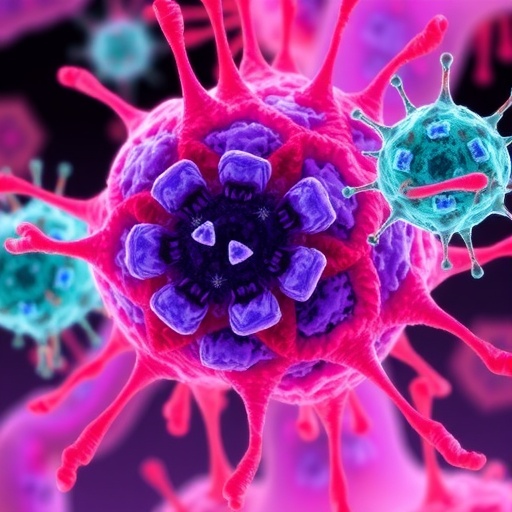Autophagy, derived from the Greek term meaning “self-eating,” represents a fundamental and highly conserved cellular process vital for maintaining cellular homeostasis and promoting survival in response to diverse stressors. This sophisticated mechanism enables the cell to engulf, degrade, and recycle damaged or superfluous intracellular components, thus preventing the accumulation of toxic debris and facilitating the renewal of cellular material. Far from merely a passive housekeeping function, autophagy dynamically responds to environmental cues such as nutrient deprivation and pathogen invasion, serving as a frontline defender in cellular defense and immune regulation.
The autophagy pathway is complex and differentiated into several subtypes. Among these, non-selective autophagy involves the indiscriminate sequestration of cytoplasmic bulk material within double-membrane vesicles called autophagosomes, directing them toward lysosomal degradation. Conversely, selective autophagy is a highly regulated process where the cell targets specific cargo such as damaged mitochondria (mitophagy), misfolded proteins (aggrephagy), or invading microorganisms (xenophagy). The fidelity of these selective processes ensures precise elimination of detrimental elements, a crucial factor in the prevention of pathologies including neurodegeneration and cancer.
In a groundbreaking study recently published in the Journal of Cell Biology, scientists from the University of Ottawa Faculty of Medicine have unveiled an innovative workflow that identifies organelle-specific regulators of autophagy using tandem CRISPR screens. This pioneering research employs cutting-edge gene-editing and screening technologies to delineate the intricate signaling networks orchestrating selective autophagy in response to various disease-related stresses. Utilizing this methodological advance, the research team achieved unprecedented resolution in mapping autophagy regulatory pathways, setting the stage for transformative insights into cellular maintenance and immunity.
Central to this research was the deployment of kinome-wide CRISPR screens, a powerful method that probes the entire repertoire of protein kinases—the enzymes that phosphorylate and regulate myriad signaling cascades within the cell. Kinases constitute a druggable class of proteins, widely recognized as attractive targets in the pharmacological modulation of diseases. Researchers harnessed this potential by integrating multiple CRISPR screens concurrently, a novel approach that amplifies throughput and rigorously validates the involvement of kinases in distinct autophagic pathways.
The ingenious screening pipeline engineered by the team, spearheaded by PhD candidate Truc Losier under the mentorship of Drs. Maxime Rousseaux and Ryan Russell, marks a departure from traditional week-long CRISPR assays. Instead, their strategy employs a concise, acute stress exposure window of three to six hours, capturing the earliest molecular events initiating selective autophagy. This temporal precision allows for the discrimination of context-specific signaling mechanisms that govern the fate of discrete cellular cargo under diverse pathological conditions.
This study builds upon the existing recognition that faulty autophagy is implicated in myriad diseases, including neurodegenerative disorders marked by protein aggregation, and cancers characterized by defective mitochondrial clearance. The meticulous parsing of autophagy’s regulatory circuits offered by this research promises to disentangle the complex molecular underpinnings behind these pathological states. Understanding the specific kinases and pathways modulating organelle-targeted autophagy expands the therapeutic horizon, offering prospects for personalized intervention strategies aimed at restoring cellular equilibrium.
Creating this robust framework required seamless integration of high-throughput gene editing and molecular cell biology within a specialized infrastructure. The Genome Editing and Molecular Biology (GEM) Facility at the University of Ottawa facilitated these advances by providing access to next-generation genome engineering tools and cDNA cloning capabilities. The facility’s establishment underscores the increasingly pivotal role of technological platforms in accelerating biomedical discovery and fostering multidisciplinary research ecosystems.
Beyond the immediate revelations about autophagy regulation, the investigators underscore the broader applicability of their refined screening protocol. By generating a rich compendium of integrated datasets, the approach dovetails with computational biology and systems medicine efforts, empowering researchers to interrogate dynamic cellular responses to stress at unparalleled depth and speed. The dataset’s versatility invites exploration across diverse biological contexts, enabling cross-disciplinary innovations in therapeutic design.
Looking forward, the University of Ottawa team is poised to translate their molecular insights into practical applications targeting innate immunity. Their subsequent investigations aim to interrogate whether modulating these identified kinases can pharmacologically influence pathogen infection outcomes. Such translational endeavors hold significant potential for the development of novel host-directed therapies against infectious diseases, by leveraging the cell’s intrinsic autophagic machinery.
This research exemplifies how precision gene-editing technologies coupled with advanced functional genomics can illuminate longstanding cellular mysteries. The ability to conduct multiple, parallel CRISPR screens tailored to specific organelles redefines experimental capabilities, providing a scalable and sensitive platform to dissect complex biological pathways. The success of this approach heralds a new era in cell biology research, one where rapid functional mapping accelerates the journey from fundamental discovery to therapeutic innovation.
In summary, the identification of organelle-specific autophagy regulators through tandem CRISPR screens not only advances our understanding of autophagy’s intricate regulation but also charts an actionable path towards addressing diseases rooted in autophagy dysregulation. The methodological innovations and biological findings detailed in this study present an invaluable resource for the scientific community, fostering further inquiry into the adaptive capacities of cellular life under stress and disease.
Subject of Research: Cells
Article Title: Identification of organelle-specific autophagy regulators from tandem CRISPR screens
News Publication Date: 21-Aug-2025
Web References:
Journal of Cell Biology Article
Keywords:
Cell biology; Cells; Cellular physiology; Biochemistry; Cell death; Life sciences; Cell responses; Genomics; Genome mapping; Genomes




